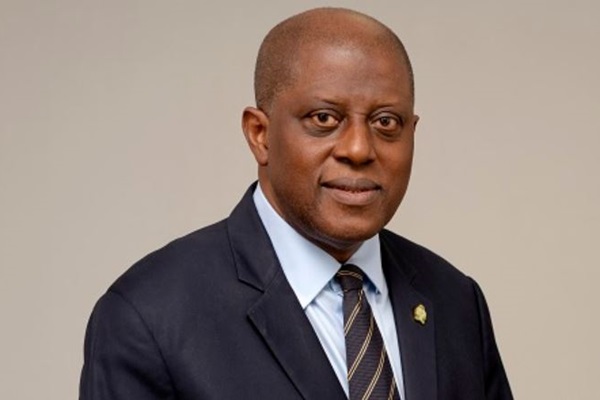Nigerians have been urged to remain patient with the policies of the Federal Government as well as that of the Central Bank of Nigeria, (CBN) as economists say the policies targeted at cleaning up the market and restructuring the economy are already manifesting.
Speaking at a public lecture organised by the Nigerian Economic Society (NES) in Ibadan yesterday, economist and the special adviser on economic affairs in the office of the vice president, Tope Fasua, stated that, there is a major restructuring of the economy that is going on as a result of the various policies.

The governor of the CBN, Dr Olayemi Cardoso also urged Nigerians to be patient as the management of the apex bank is doing everything possible to ensure that the naira is strengthened.
Represented by the head, Department of Monetary Policy, Dr Usman Opanachi, Cardoso said, “Anytime naira is on trial, the CBN is also on trial.
“We are working day and night to address the challenges and we hope things will work out. “The exchange rate features nearly in every sector. The exchange rate and inflation is very high now. Exchange rate is a problem on its own.
“Excess demand for forex in Nigeria is a legendary problem. It has just been there and over the years, the bank has implemented various strategies to address this problem. Those strategies have only been able to provide some temporary reliefs.
“The Central Bank of Nigeria does not supply or produce dollars; It is naira that it produces. CBN management thinks when you hold the price of a commodity that is determined by Forex down artificially, a time comes when you will not be able to do that.
“The thinking of the new management of CBN is that the policies you have are intended to address the problem. The approach the management has adopted is Market forces approach. The bank now allows the market forces to play a greater role in the determination of the price of naira.”
This is as the Former President and fellow of Nigerian Economic Society (NES), Professor Sam Olofin has warned against imminent collapse of the country’s currency, naira. The professor in his public lecture on ”Recent Development In The Nigerian Foreign Exchange Market: Issues, Options and Way Forward”, stressed that, if the naira must be saved from imminent collapse, the time had come to rescue it from the hands of the powerful operators in the foreign exchange market.
Olofin, who called on the federal government and other major stakeholders in economic society across the country to save naira from imminent collapse said: “the time has come like it is in other countries that believes in rule of law, to define what is legal and distinguish such from what is criminal.
“Have criminals apprehended and made them to face severe consequences for their actions. The weak and vulnerable need to be protected and prevented from imminent collapse. We have examined the evolution and operations of the Nigerian Foreign exchange market in relation to recent policy measures aimed at addressing observed anomalies in the market.
“As we speak the Naira value against major foreign currencies especially the dollar has continued its free fall and stands at over N1.500 to a dollar. Our attention should be focused on this powerful segment of the market, the so-called parallel of black market. We have succeeded either deliberately or unwittingly, in creating a monster that has been well protected.
“The immediate issue of concern in the near and immediate future as to the way forward should be on how to put a halt to this free fall, stabilise the value of the naira and ensure effective operation of the foreign exchange market.”
On his part, Fasua said, there is a need to move focus away from the currency and concentrate on production in the country.
Stating that Nigerians ought to focus on productivity rather than chasing what the true value of the naira is, he said “we needn’t be chasing this. I wish that we would actually begin to focus Nigerians on other things on productivity on other issues.”
Speaking on the current challenges in the country, he said “we have been at it for so long. Those problems may not be solved in nine months. So, we are going to continue appealing for your patience.”
Earlier, the President of the Nigerian Economic Society, Professor Adeola Adenikinju said: “The choice of today’s theme is apt as it is perhaps the most important issue in Nigeria today. The subject of foreign exchange is within the ambit of economics. The exchange rate is a price. However, for an import dependent economy like ours, it is a price that influences other prices in the economy – products, money, and factor markets.
“The spike in inflation in the last few months in particular has been largely driven by the exchange rate. The pass through effect from the exchange rate to other prices is quite high. The government, especially the CBN, has reacted to the sharp and persistent devaluation of the naira with a rash of circular policies.”
“Attimes, we worry that the effects of a particular policy have not been assessed before others are quickly thrown into the mix. This action has a tendency to add to uncertainty and the flight to safety postures of economic agents, who continue to hold dollars outside the banking system”, he said.







